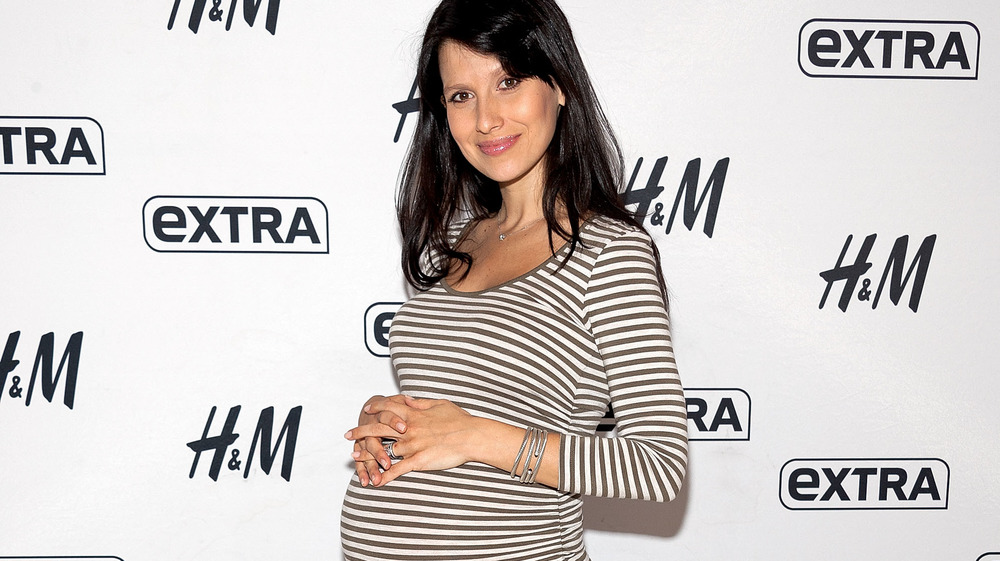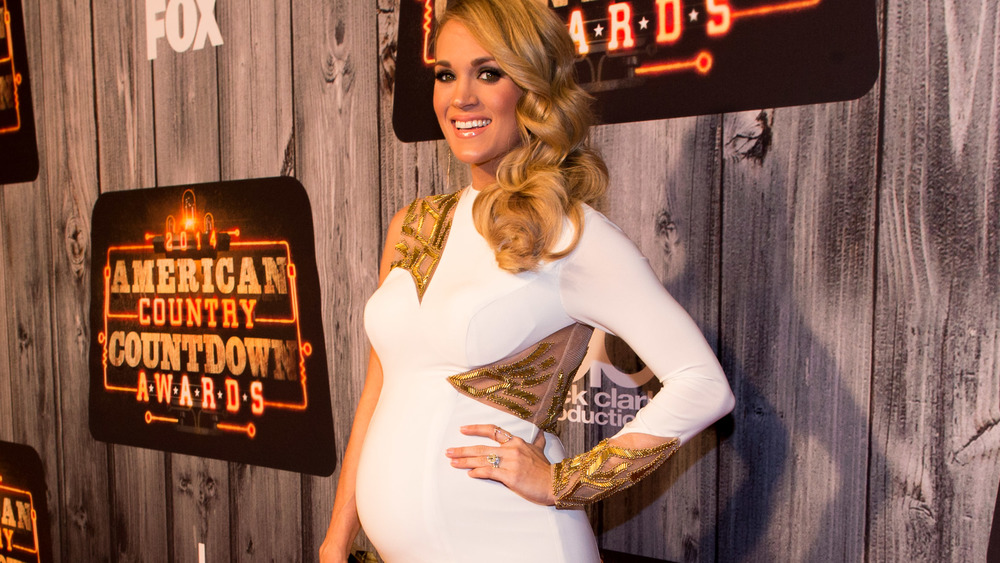The Legal Aspects Of Surrogacy Are A Lot More Complicated Than You Thought
Although infertility issues have historically been a taboo subject, women have been fighting to change the mindset surrounding the women's reproductive system. Consequently, celebrities have become more open about detailing their fertility troubles, such as Chrissy Teigen, Carrie Underwood, Kim Kardashian, Hilaria Baldwin, and more.
Baldwin was very open about her fertility struggles after suffering two miscarriages in 2019, and wanted to use her story to connect with other women who may have gone through something similar. "We are a group that has been taught to be closed, and I have decided that I don't want to be," she wrote in a January 2020 essay for Glamour. "In opening up, not only do I want to heal myself through sharing my story, but I also want to show others that there is another path — one of openness," she continued.
Hilaria was able to get pregnant again in 2020, and gave birth to her and Alec Baldwin's fifth child in September of that year. It was a surprise, then, when she announced she and Alec welcomed their sixth child on March 1, 2021. According to People, the couple chose surrogacy this time around.
Surrogacy has been a growing trend in Hollywood according to the Center for Genetics and Society, making the process seem like a feasible family planning route. However, the legal aspects of surrogacy are a lot more complicated than you thought.
There are varying surrogacy laws throughout America
The List spoke to celebrity attorney and Walzer Melcher partner Christopher Melcher about the legal issues that may come up during a surrogacy, and he recommended that couples looking to use a surrogate carefully plan the experience with a "qualified attorney."
The first step to planning a birth through surrogacy is acknowledging the varying surrogacy laws in America and identifying what the process is like in the baby's intended state of birth. "California has favorable laws on surrogacy, so couples from other states or countries may use a California surrogacy agreement to accomplish what they cannot in their place of residence," Melcher said. However, he cautioned that the "risk of exploitation of the surrogate or the intended parents exists no matter where the agreement is made."
Compensation is another hot topic when it comes to surrogacy payment. "California allows for compensation and funds are usually disbursed to the surrogate in stages according to the agreement. New York recently allowed for paid surrogacy, while some states prohibit it," he explained. Melcher also warned of the high costs that come with surrogacy, which can add up to more than $100,000. Considering California's leniency with surrogacy paired with its high cost, it's easy to see how it may be a favorable option for Hollywood couples struggling with fertility.
There is a certain risk for celebrities when it comes to surrogacy
Melcher told The List that there aren't too many legal risks involved while the surrogate is physically pregnant, as the intended parents and surrogate are locked in a legal deal. However, issues can arise if "the unborn child has a developmental disability, the surrogate unintentionally becomes pregnant with two or more children, or the pregnancy could become too dangerous for the surrogate to continue." Plus, there's a chance that a couple in the surrogacy process may break up, which could lead to a custody battle.
Melcher also revealed that there is a mental well being risk for celebrities when it comes to surrogacy due to their constant battle for privacy. "Having a child by assisted reproductive technology would be reported on, potentially placing the surrogate in the spotlight and exposing the couple's most private and intimate secrets about their efforts to have a child," he cautioned. "It also subjects the child to embarrassment by making public the circumstances of the pregnancy." However, it does seem that celebrities have been able to pull off their surrogacy journey while keeping it a private event, as the Baldwins did.


